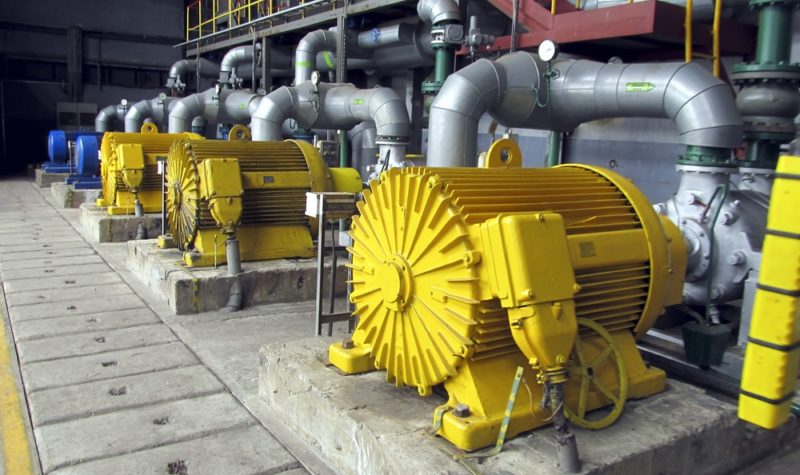Higher inflation makes Pennon a must-have stock

A higher rate of inflation could be a game changer for UK income investors. In recent years, it has been at relatively low levels, and this has made it fairly straightforward to generate a positive real dividend yield (i.e. after inflation has been deducted). Now, though, inflation is at 2.7% and is forecast to move higher. This reduces real dividend yields and means that some stocks now offer negative real income yields. Even the FTSE 100 now has a real income yield of only just over 1%.
As well as lower real dividend yields, many companies may struggle to deliver dividend growth which beats inflation. With the UK economic outlook downgraded recently by the Bank of England, earnings growth may be lacklustre. This may mean dividend growth is simply unaffordable for some companies operating in deteriorating sectors. The effect of this on investor sentiment may be negative, since it would equate to a fall in an investor’s income return when inflation is factored in.
Therefore, buying water services company Pennon (LON:PNN) could be a sound move. Not only does it have a 4% yield, it is aiming to increase dividends by RPI inflation +4% over the next three years. As well as the appeal of a defensive business model during an uncertain period for the UK economy, this could send its share price higher.
A difficult situation
Although inflation is not high when compared to historic levels, it is nevertheless at its highest level since 2013. Therefore, it represents a significant change in the recent trend, which had been one of near-zero inflation for a sustained period of time. However, the current level of inflation is not expected to be the peak, with the Bank of England forecasting a higher rate before the end of 2018. Other forecasts suggest inflation could surge higher than 3% over the medium term.
This creates difficulties for income investors in particular. The FTSE 100’s yield of 3.8% provides only a relatively small real income return, which could make higher-yielding shares more attractive. However, three-quarters of the FTSE 100’s constituents currently yield less than the index. This leaves investors with a relatively small pool of options – unless they are willing to buy mid or small-cap stocks. In that case, they may offer less stability and less reliability when it comes to making dividend payments.
Even if an investor buys FTSE 100 stocks with above-average dividend yields, the prospect of above-inflation dividend growth may be somewhat limited. A number of the higher-yielding shares in the index have issues such as high payout ratios (e.g. BP and Shell), changing business models (e.g. Centrica and BT), as well as uncertain earnings outlooks (e.g. Marks and Spencer and easyJet). Therefore, their dividend growth rates may fail to surpass inflation over the short run. In that scenario, their share prices could come under pressure since even their high yields may start to fall in real terms.
The right stock
Given the difficult situation in which income investors find themselves, FTSE 250-listed Pennon could be the right stock to buy at the moment. As mentioned, it has a dividend yield which is 20 basis points higher than the FTSE 100’s yield. Just as importantly, it is set to raise dividends at an annual rate of RPI +4% over the next three years. This combination of a relatively high dividend yield and the potential for inflation-beating dividend growth could set the company apart from most other income shares over the medium term.
Pennon’s ambitious dividend growth rate looks set to be made possible by the strong performance of its businesses. In its recently-released full year results, the company stated it has a Return on Regulated Equity (RoRE) of 12.6%. Its profitability has been boosted by a cost reduction programme that has seen savings of £129 million in total expenditure delivered at its South West Water division since the start of the current regulatory period.
Pennon’s ambitious dividend growth rate looks set to be made possible by the strong performance of its businesses.
Further, the Energy Recovery Facility portfolio in its Viridor waste division continues to outperform expectations regarding profitability. It is due to help Pennon report a rise in earnings of 13% next year. This puts the company’s forecast dividend cover at 1.2x for the 2019 financial year. This suggests its planned dividend growth rate over the medium term is affordable and sustainable over a longer period.
In addition to its absolute appeal, Pennon also offers relative appeal when compared to a number of its sector peers. Centrica and SSE may have dividend yields which are higher than Pennon at 5.8% and 5.9% respectively. However, their outlooks could be disrupted to some degree by the proposed price cap on variable rate energy tariffs. National Grid has the same yield as Pennon, but may be unable to match its dividend growth outlook. Meanwhile, water services companies Severn Trent and United Utilities have yields of 3.3% and 3.7% respectively. Both are therefore below Pennon’s yield.
Outlook
The UK economy faces an uncertain outlook due in part to a higher rate of inflation. Consumer spending may fall because wage growth has slipped back below inflation. This could cause some companies to report lacklustre earnings growth which could lead to negative real dividend growth. With inflation set to move higher and three-quarters of the FTSE 100 having real dividend yields of less than 1%, many stocks could become relatively unattractive for income investors over the medium term.
Since Pennon has a yield of 4% and is set to increase dividends by RPI +4% over the next three years, it could be a popular choice for income investors. Its dividend seems to be affordable, and its business appears to be performing well. Its defensive characteristics could also be of benefit should political risk heighten in the months ahead. Therefore, given a tough outlook for income investors, Pennon could be an appealing investment opportunity.
Comments (0)